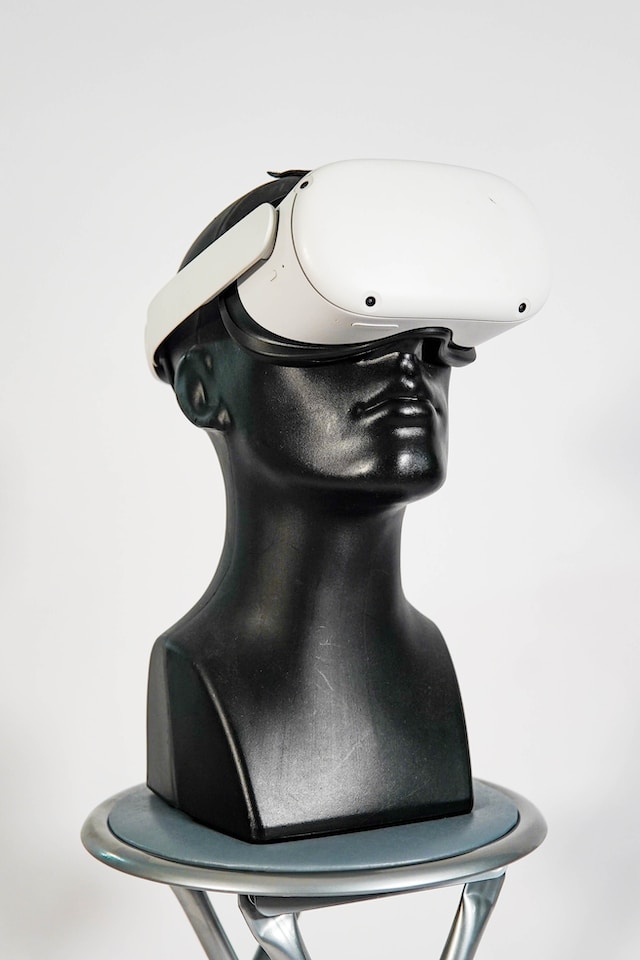Exploring the Benefits of Virtual Reality in Real Estate Marketing

Virtual reality in real estate marketing provides immersive property tours, cost efficiency, personalization, global reach, and a competitive edge
In recent years, virtual reality (VR) has emerged as a transformative technology with the potential to revolutionize various industries. One such sector that has greatly benefited from VR is real estate marketing. By leveraging the immersive and interactive capabilities of VR, real estate professionals can offer potential buyers a unique and engaging experience. In this article, we delve into the numerous benefits of using virtual reality in real estate marketing, highlighting how this technology is reshaping the industry and improving customer satisfaction.
Immersive Property Tours: Virtual reality enables potential buyers to embark on immersive property tours from the comfort of their homes. Instead of relying solely on static images or video walkthroughs, VR allows users to navigate through a property in a lifelike manner. They can explore different rooms, examine architectural details, and gain a genuine sense of space and scale. By providing an immersive experience, VR increases buyer engagement and helps them make more informed decisions.
Time and Cost Efficiency: For real estate agents, conducting physical property tours can be time-consuming and costly. Virtual reality eliminates these constraints by enabling agents to showcase multiple properties without leaving their office. By leveraging VR technology, agents can provide potential buyers with a virtual portfolio of properties, reducing the need for countless on-site visits. This saves time and resources for both the agent and the buyer, allowing them to focus on properties that genuinely interest them.
Personalized Property Customization: Virtual reality enables buyers to personalize the appearance and layout of a property based on their preferences. With VR tools, potential buyers can virtually change the color of walls, flooring materials, furniture, and more. This customization feature allows buyers to visualize their dream home and make decisions accordingly. By providing such flexibility, VR empowers buyers to connect emotionally with a property and fosters a deeper sense of ownership.
Global Reach: One of the significant advantages of virtual reality in real estate marketing is its ability to transcend geographical boundaries. With VR, buyers from around the world can explore properties located in different cities, states, or even countries. This widens the reach of real estate agents and developers, enabling them to showcase properties to a global audience. VR eliminates the need for physical travel, making it possible for international buyers to experience a property firsthand without leaving their home country.
Enhanced Pre-Construction Visualization: Virtual reality is particularly beneficial during the pre-construction phase of a real estate project. Developers can create virtual models of upcoming properties and allow potential buyers to explore them in detail. Through VR, buyers can visualize the finished property, assess the architectural design, and understand the layout even before construction begins. This helps developers generate interest, secure pre-sales, and make informed design decisions based on buyer feedback.
Emotional Connection and Decision-Making: Buying a home is an emotional decision. Virtual reality aids in creating an emotional connection between potential buyers and properties. By allowing users to explore a property in a realistic and immersive manner, VR triggers emotional responses and helps buyers envision themselves living in the space. This emotional connection can significantly influence the decision-making process and increase the likelihood of a successful sale.
Showcasing Property Features: Virtual reality enables real estate professionals to showcase property features more effectively. Whether it's highlighting architectural details, showcasing interior design elements, or demonstrating the functionality of a space, VR brings these features to life. Buyers can experience the flow of a property, examine finishes, and understand the practicality of different areas. By effectively communicating the unique selling points of a property, VR helps increase buyer interest and engagement.
Competitive Advantage: In an increasingly competitive real estate market, differentiating oneself is crucial. By embracing virtual reality, real estate agents and developers gain a significant competitive advantage. VR demonstrates a commitment to innovation, providing potential buyers with an exceptional and modern experience. Buyers are more likely to choose agents who offer VR tours over those who rely solely on traditional marketing methods. Embracing VR technology can set real estate professionals apart and position them as industry leaders.
Virtual reality has revolutionized the real estate marketing landscape, offering numerous benefits to both agents and buyers. From immersive property tours to time and cost efficiency, personalized customization, and global reach, VR enhances the overall experience and fosters informed decision-making. As the technology continues to advance, it is expected to become an indispensable tool in the real estate industry, transforming the way properties are marketed and sold. By embracing virtual reality, real estate professionals can stay ahead of the curve and provide their clients with a truly immersive and memorable experience.

